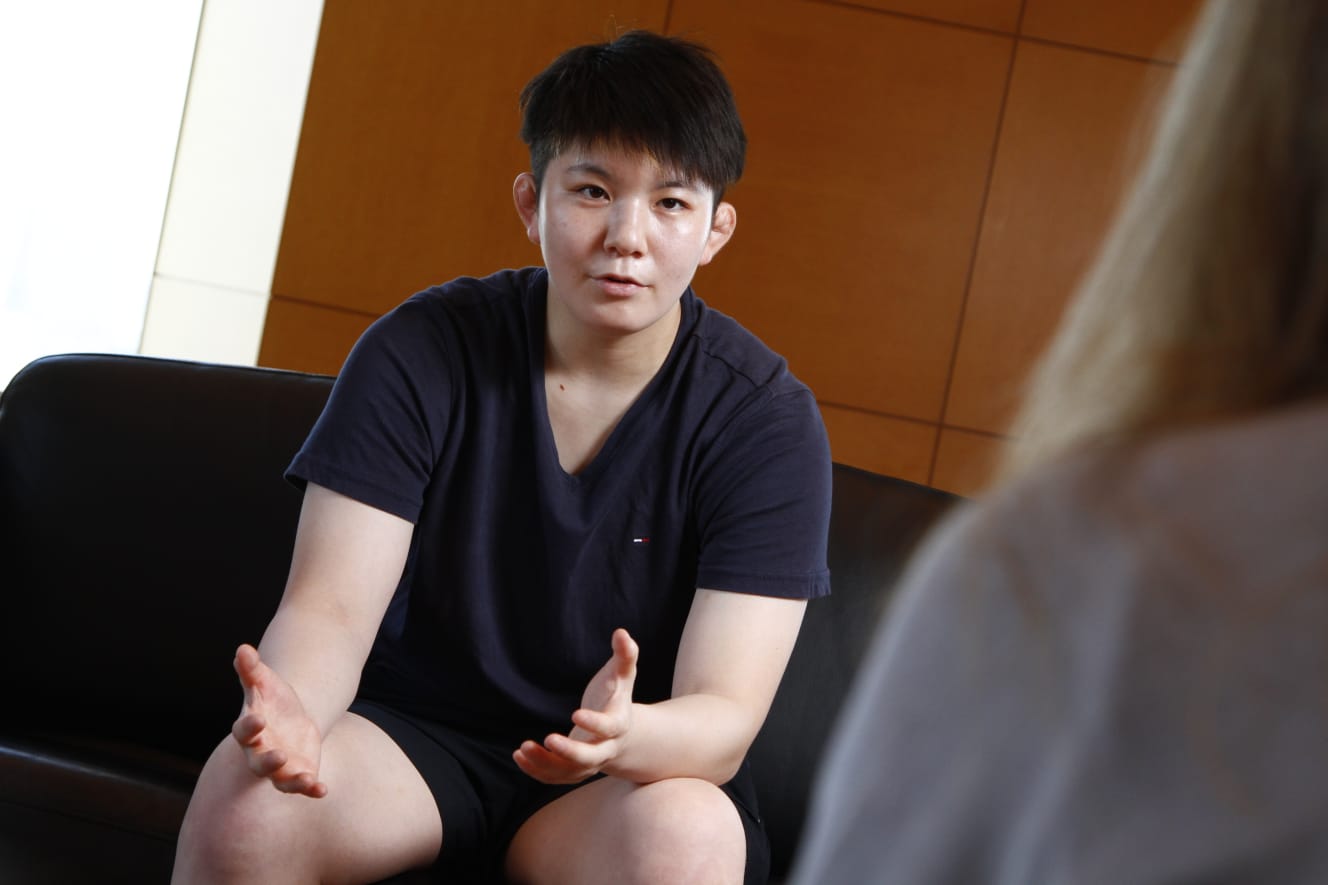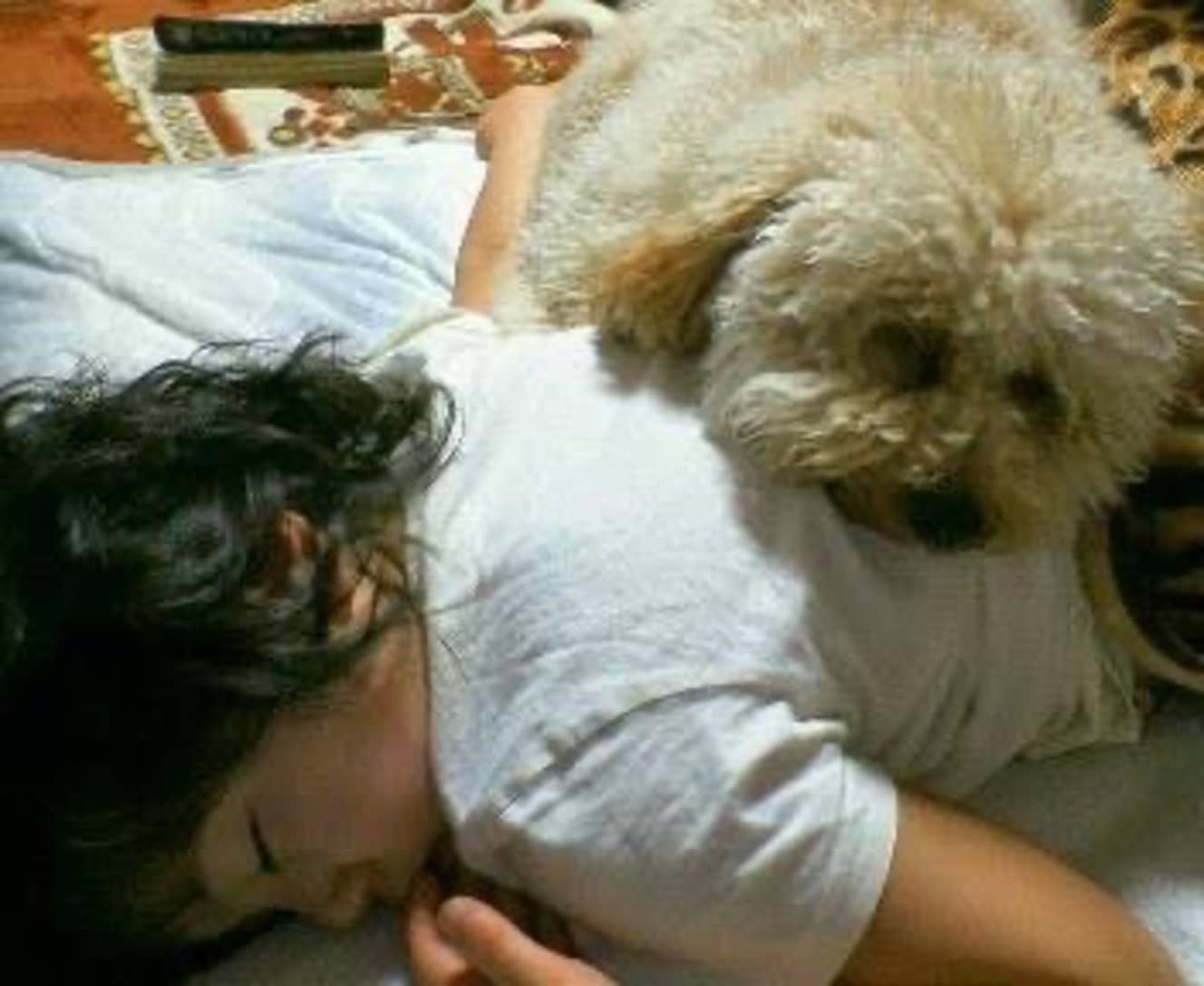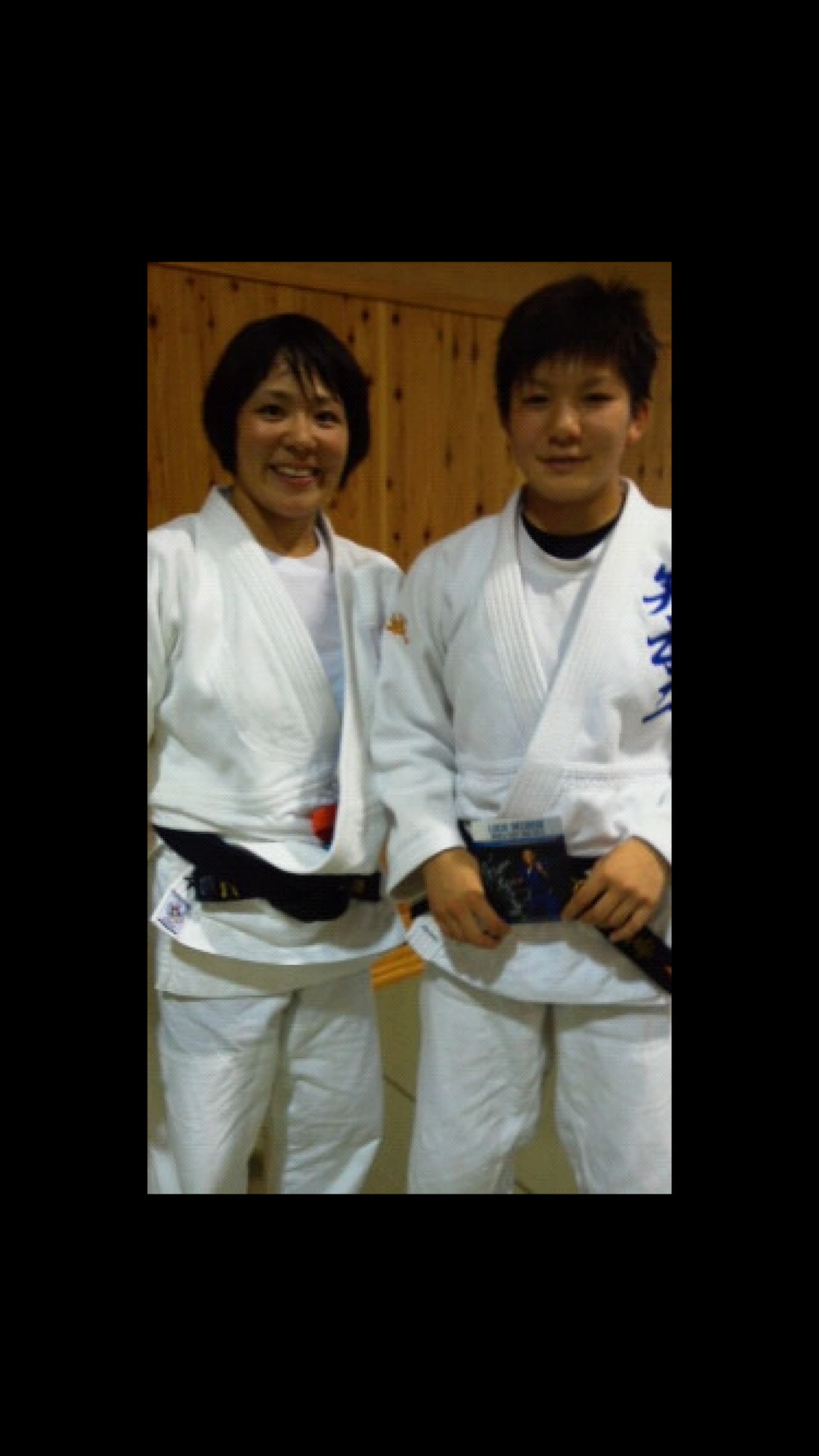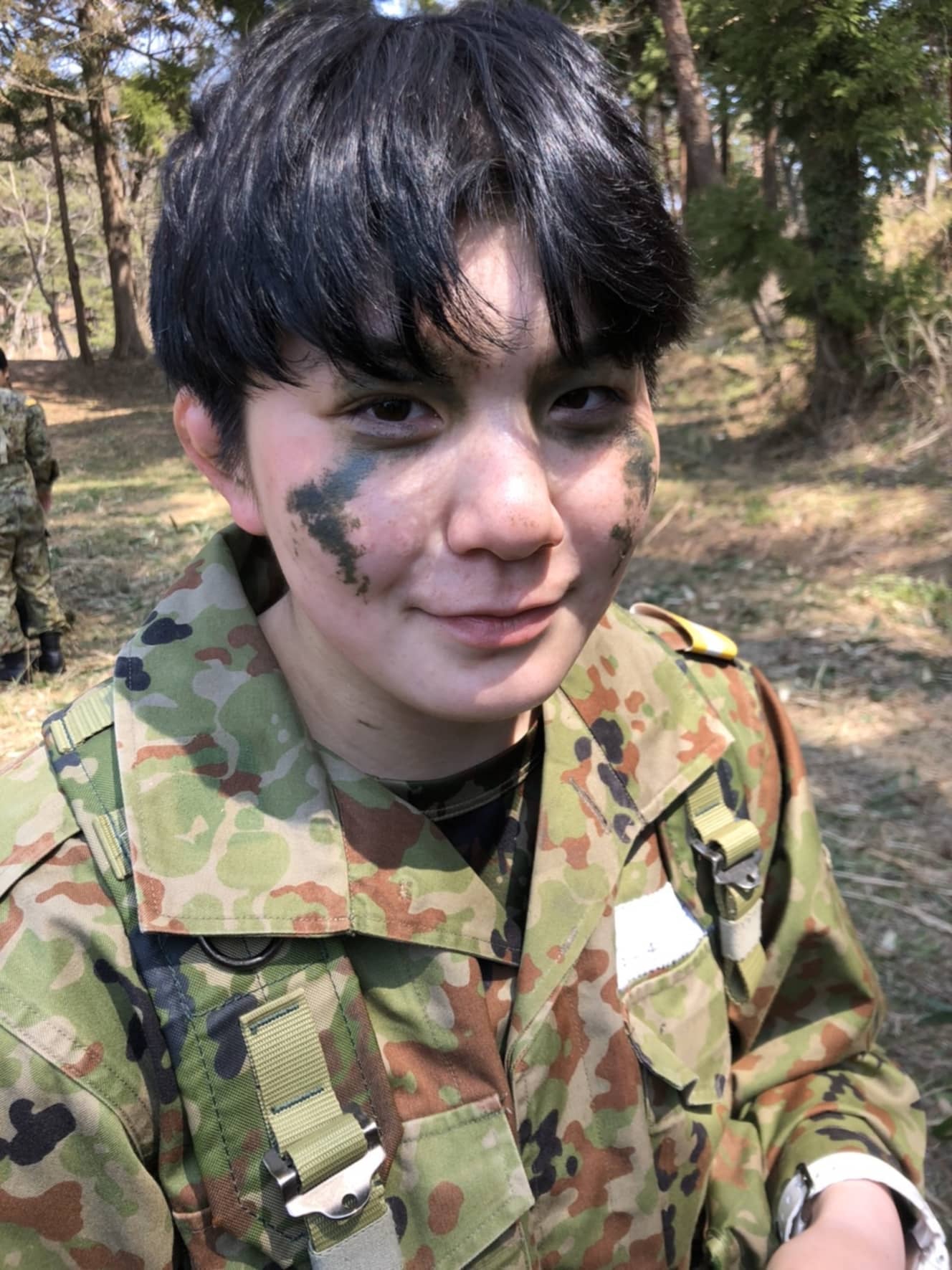The Gruesome Sexual Harassment Suffered by a 22-Year-Old Former Female Self-Defense Force Officer
What Rina Gonoi said about facing unbelievable sexual violence
In late June, two videos went up on YouTube. They are shockingly titled “Sexual Harassment Confession: Woman Forced to Retire from the Self-Defense Forces” and “Surrounded by 15 members of her unit, she was forced to…” The way the young, serious-looking woman spoke, choosing her words carefully, highlighted her anguish and the authenticity of what was said. We interviewed her as she faced the horrific sexual violence.

Sexual harassment took place both in the morning and in the afternoon.
Rina Gonoi, 22, joined the Japan Ground Self-Defense Force in April 2020 because she wanted to master judo, which she had started at age 5, and because she admired female Self-Defense Force officers who supported her after the Great East Japan Earthquake, of which she was a victim. She passed the examination.
After a six-month training period, when she was assigned to a company in the Tohoku area, she heard a rumor that the sexual harassment in that company was terrible. However, there was no way she could refuse her first assignment.
When she arrived at her post, she was immediately subjected to sexual harassment by the new recruits.
She was suddenly hugged while walking down the corridor, and told that she was going to perform judo moves on her while on duty, and then grabbed her by the waist and put her in a back position and shook her hips. They would grab me by the waist and shake me around, even if there were other people around.
Sexual violence against new female recruits was not limited to nights when they were drinking. There were various unbelievable forms of sexual harassment, such as sudden physical touching, verbal abuse, and being suddenly told to “suck mine” in the morning or in the afternoon.
Senior members of the team began panting as they struck sexual poses.
It was in August of last year that she finally ran out of patience.
We had a month-long training session in a distant place. At night we would have a banquet with meals. I was the lowly one, so I was preparing the meal. Then I was told, ‘Don’t worry about the meal, just entertain us,’ so I joined the banquet circle. Then, Mr. E, a sergeant, suddenly started talking about the martial arts of “knocking down a man by locking his neck,” and said, “Try it on Gonoi. Then Sgt. S, who usually plays the role of a mood maker, put his hands on my neck and knocked me down. From there, He forced my legs open, and then he leaned on me on his horse, shook his hips with his lower half of his body in close contact with mine, and started moaning by himself. The people around me laughed; Sgt. E and Sgt. Y were definitely laughing. I didn’t like it and was embarrassed. But I still couldn’t do anything.”
At this point, she had been in the SDF for a little over a year and was probably imbued with the mindset that “one should not go against what one’s superiors say, and that one’s underlings should not make the atmosphere of the place worse.” From her perspective as a newcomer, everyone in the unit is in a superior position.
Every second and third person was also a force to be reckoned with.
The bizarre situation was not limited to S’s outburst. The next member of the troop, K, who is also an Alaska member, was similarly knocked down with a jerk of the head, and she bucked her hips on her body. A third, A, grabbed both of her wrists and held them down while he repeatedly shook his hips in the same manner.
She resisted with all her strength in her wrists, but she was no match for the men’s power.” A said, ‘Gonoi is quite powerful,’ as he climbed down from my body. He must have known I was resisting.
The situation subsided for a time. But after a while, Issao E started talking about martial arts again. When he asked me, S came out again and repeated the same thing: “How do you do that thing where you lock the neck?
I could see myself pulling a face. When the act was over, S quietly said, ‘Don’t tell anyone. Even though I told him not to tell anyone, many members of the team were watching around us. As expected, some of them were not laughing at this time. Not only was I embarrassed, but everyone at work laughed at me and I felt my body was defiled. Afterwards, I felt ‘nothing’ rather than anger or humiliation. I was empty, of everything.”
I can’t stay here anymore; if I stay here, my body and mind will be defiled. Feeling this way, she consulted with a senior female member and appealed to the company commander, saying, “I want to go home. She knew that there was no way she would be allowed to leave the training area. Her head, body, and heart probably pushed her to say, “I’m at my limit.
“The senior woman I talked to was supportive, but when the company commander said, ‘Training is training,’ she flipped her hand and said, ‘That’s right. She still cried and complained that she wanted to go home, so we decided to send her home, not because of sexual harassment, but because her mother, who was fighting a disease, was not feeling well. The senior woman told me, ‘Keep in mind that I lied to you. ‘ At first she said something that sounded like she was taking my side, but when it came down to it, she wasn’t at all.”
In an organization, does everyone think about self-preservation? Is it possible that even what they actually saw is something that they did not see? Is this the kind of organization where you will lose your place if you blow the whistle? The Self-Defense Forces, which I had longed to join, was a world far different from what I had expected.
When he was in the fourth grade, there was an earthquake.
Gonoi was born in Higashimatsushima City, Miyagi Prefecture, in 1999, the youngest of two older brothers. He began his love of judo when he was five years old.
My mother was suffering from cancer at the time, and she wanted me to take up some kind of martial art so that she would live strong even after I was gone,” he said. My mother was doing kendo, so we went to a kendo dojo, but I didn’t seem very interested. He went with my two older brothers to visit the judo hall and said he would do this. I remember very little about it.”
By the way, her mother survived her illness with surgery and is still alive and well.
In 2011, when she was in the fourth grade of elementary school, she suffered damage from the Great East Japan Earthquake in Higashimatsushima City, Miyagi Prefecture.
I was at school that day. My father and mother were at their respective workplaces, and my two older brothers were in junior high and high school. My family was scattered. I was playing futsal in the elementary school gymnasium when suddenly the earth rumbled and shook with a bang. It was more like I was thrown out. A few days before that, there had been an earthquake of intensity 5 or so, but it was nothing like that. At first we ran to the schoolyard, but then we all evacuated to the second floor of the school building because a tsunami might be coming. I don’t have a clear memory of that area. I don’t really remember if I was scared or not. I was just worried about my dog at home.”
Immediately after the big earthquake, some children were picked up from school by their parents or grandparents. But the tsunami hit a few dozen minutes later, and some of the children who had been picked up from school by their parents were swallowed by entire cars on their way home. The children evacuated to the second floor of the school and spent the night eating “a sip of water and a piece of candy.
Gonoi’s mother was working in the neighboring city of Ishinomaki and could not come to pick her up that day. She was stopped by local firefighters who told her not to come because of the tsunami.
“Meanwhile, a neighbor came to the school and said, ‘We tried to save your dog, but we couldn’t open the front door.’ We had two dogs. When the earthquake hit a few days ago, my family and I talked about moving the dogs’ cages upstairs. … … The next day, after the water receded, I went back to my house, which was about a two-minute walk from the school, by myself. Both dogs had died in their cages on the flooded first floor. I couldn’t help but wish I had brought the cages upstairs. I remember going back to school again, crying.”
Mr. Gonoi quietly lowered his eyes.
She had to endure the smell of gasoline, the black tsunami, and the stench of overflowing toilets. It is beyond imagination how deeply traumatic the disaster must have been for a young girl of no more than a year old.

Meeting a Self-Defense Official at an Evacuation Center
It was about a week later that I finally met my mother. My mother came to pick me up and we went to her workplace, which had been turned into a temporary shelter. The family joined her there and spent a few days, after which they lived at a local community center for three months.
‘That’s where the Hokkaido Self-Defense Forces came to help us,’ he said. Before that, there had been festivals at the local base where the Blue Impulse flew over, but this was the first time I had direct contact with Self-Defense Force personnel.
A female member of the team gave me a bath and we arm-wrestled after the bath. She was strong. I thought, ‘Cool, I definitely want to win someday. I was happy when that person said to me, ‘Judo, keep doing it. It made me yearn to become a member of the Self-Defense Forces.
After about a year, she was able to move out of the shelter and into an apartment. When she was in the sixth grade, her parents divorced. Since then, her mother raised her three children by herself.
When I entered junior high school, I worked as a newspaper carrier to help the family make ends meet, and I also took part in judo as part of the school club and went to the dojo. But it was fun.”
In the house they lived in before the earthquake, his father remodeled a Japanese-style room and turned it into a judo room for the children. My father himself took up judo and worked his way up to a black belt. My mother laughs, “He was too enthusiastic, and even though he had never practiced judo before, he would tell the children what to do, making them worry about this and that. With her “family home” gone, the shape of her family changed. She may have had no choice but to devote herself to judo.
In junior high school, I won the individual championship in the prefectural tournament in my first year, won the team competition in my second year, and went to the national tournament.
Scouted by many high schools, he entered a private high school and began dormitory life. He was blessed with a judo instructor and senior judo students, but he and his classmates in the judo club just didn’t get along. After discussing the situation with his classmates, he was ignored again the next day, even though he had supposedly united with them to do his best together.
I apologized to them, asking if I had said something inappropriate, but they still ignored me. Ignoring is the hardest thing of all. I have a weak point, so when the bossy person strongly criticizes me, I can’t say anything.
His heart closed up. In the end, he dropped out of high school and withdrew to his home for about six months. He blamed himself, wondering why he could not speak up. Then, he saw a passionate judo sensei on TV. I thought that I might be able to become strong with this teacher. I asked my mother to call him.
I entered that high school in Kansai and started over from the second year of high school. Best in the national tournament I made it to the top 16 I made it to the top 16 in the national tournament, but I lost because of a knee injury. It was very frustrating. But clearly I thought I had become mentally stronger, and I think that teacher saved my life.”

At the time, he also loved comedy. I wanted to be “funny” like Imoto Ayako and Izukawa Tetsuro. She even auditioned in Osaka and performed with popular TikTok celebrities. Still, judo was special to her.
She accepted an invitation from a university in Yamaguchi Prefecture and enrolled. Here, too, she worked hard in a straight line of judo, but the coach who had invited her quit, and the judo club turned into a club. Then she remembered her longing to become a female Self-Defense Forces officer.
There is a judo club in the Self-Defense Forces, and beyond that, there is a path to go to a physical education school. My childhood dream of competing in the Olympics came back to me. I wanted to work for others and master judo, so I applied to the JSDF.”
She enlisted in April 2020, and after a six-month training period, she was assigned to a company called the “Field Special Forces” unit. It is a unit that handles large artillery pieces.
About two months prior to the decisive incident in August, she had been jostled, groped, and kissed on the cheek by several members of her unit at a banquet held at night during training. This incident had also become a problem within the unit.
Part 2: “Being squirmed around by multiple members of the unit…the hell that a 22-year-old female SDF officer saw.


Interview and text by: Sanae Kameyama Photography: Yuri Adachi